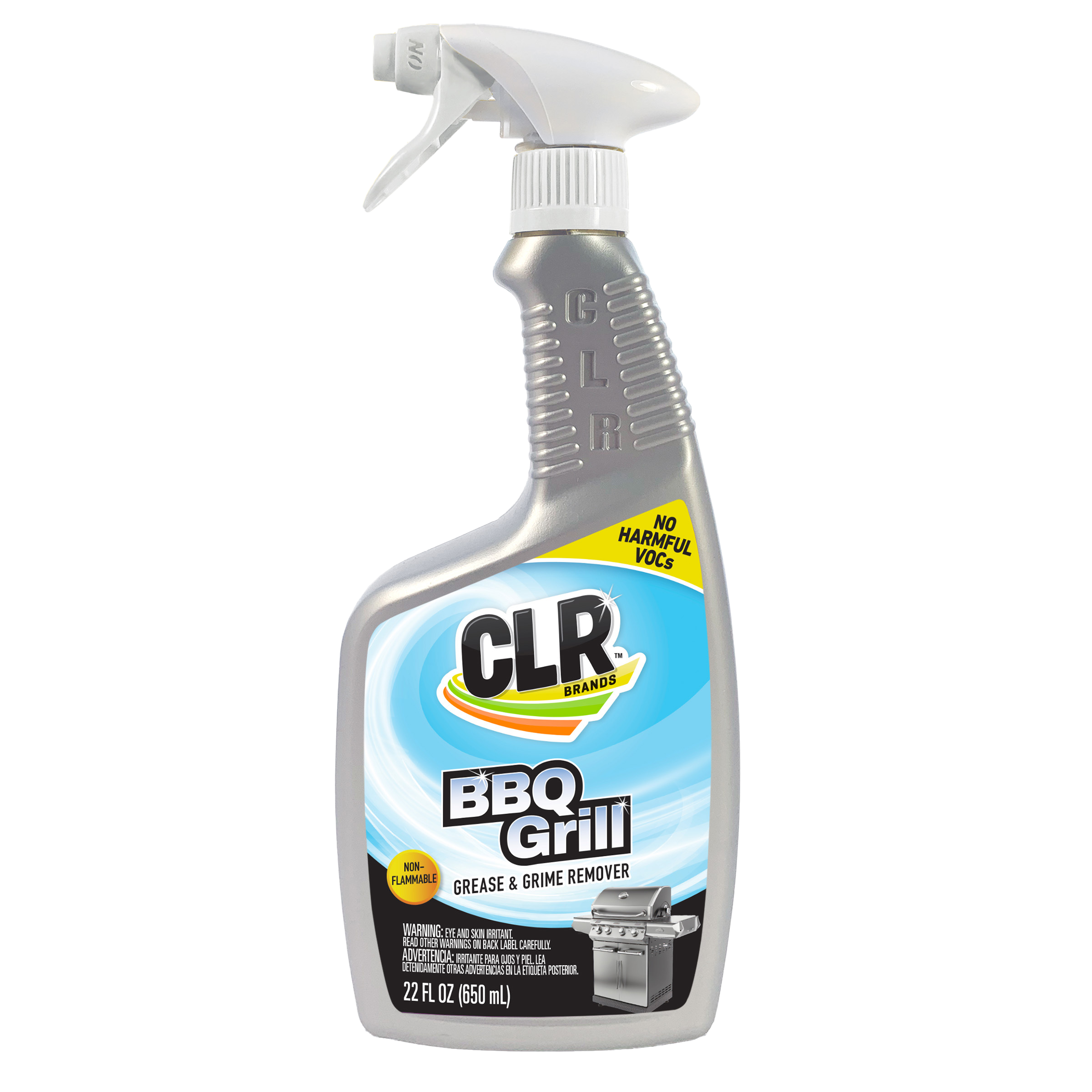
BBQ Grill
- Cuts through baked on food, grease and grime on your outdoor cooking equipment including stainless steel, steel and porcelain enamel. Helps to avoid dangerous flare ups.
- Has a powerful foaming trigger that is perfect for use on both the inside and outside of your grill, smoker or deep fryer.
- Non-flammable and contains no harmful VOCs.
Look for BBQ Grill in this size
- 22 oz. spray
- 26 oz. spray
More information
How to use this product
- Wear household gloves.
- Test on a small hidden area before cleaning the entire surface.
- Brush off loose charred deposits before starting cleaning process.
- Spray on full strength to a cool grill and let soak for 1-5 minutes.
- Clean with a brush until stain/soot is loosened.
- Rinse thoroughly with cool clean water and allow time to dry before use.
Repeat above process if necessary.
Product ingredients

| Water | Dilutent: CAS #7732-18-5 |
|
|
| Dilutent: CAS #7732-18-5. Reverse Osmosis (RO) is a water treatment process that removes contaminants from water by passing the water through a membrane, (filter), where contaminants are filtered out yielding more pure quality water. | |||
| C9-11 Alcohols Ethoxylated | Surfactant: CAS #68439-46-3. |
|
|
|
Surfactant: CAS #68439-46-3. It is used in cleaners to modify the surface tension of water, to aid in even spreading and to allow mixing with oil and dirt so that they can be rinsed away. As part of the EPA Safer Choice Program, it has been evaluated and determined to be safer than traditional chemical ingredients. California CPRKA Designated Lists (3) EU Endocrine Disruptors. https://echa.europa.eu/candidate-list-table (16) California NLs. https://oehha.ca.gov/water/notification-levels-chemicals-drinking-water (18) California TACs. https://ww3.arb.ca.gov/toxics/id/taclist.htm (20) California Non-Cancer Hazards. https://oehha.ca.gov/air/general-info/oehha-acute-8-hour-and-chronic-reference-exposure-level-rel-summary |
|||
| Sodium Metasilicate Pentahydrate | Builder: CAS #6834-92-0 |
|
|
|
Builder: CAS #6834-92-0. A strong oxidizer. As a component in a chemical degreaser, it reacts with fatty acids (animal grease) to form a soap, which is then rinsed away. As part of the EPA Safer Choice Program, it has been evaluated and determined to be safer than traditional chemical ingredients. California CPRKA Designated Lists (7) Canada PBTs. https://www.canada.ca/en/environment-climate-change/services/canadian-environmental-protection-act-registry/substances-list/domestic.html (9) IARC Carcinogens. https://monographs.iarc.fr/agents-classified-by-the-iarc/ |
|||
| Sodium Xylene Sulfonate | Coupling Agent: CAS #1300-72-7. |
|
|
|
Coupling Agent: CAS #1300-72-7. An organic compound that increases the ability of water to dissolve other molecules. It is also found in personal care products as a surfactant, to modify the surface tension of water, to aid in even spreading and to allow mixing with oil and dirt so that they can be rinsed away. As part of the EPA Safer Choice Program, it has been evaluated and determined to be safer than traditional chemical ingredients. California CPRKA Designated Lists (4) IRIS Neurotoxicants. https://cfpub.epa.gov/ncea/iris/search/index.cfm?sys_joint=11 (10) ATSDR Neurotoxicants. https://www.atsdr.cdc.gov/substances/toxorganlisting.asp?sysid=18 (17) California MCLs. https://govt.westlaw.com/calregs/Document/I2810C4E12DCC4B40A16 (18) California TACs. https://ww3.arb.ca.gov/toxics/id/taclist.htm |
|||
| Ethylenediaminetetracetic Acid Dipotassium Salt Dihydrate | Chelating Agent: CAS #25102-12-9. |
|
|
| Chelating Agent: CAS #25102-12-9. | |||
